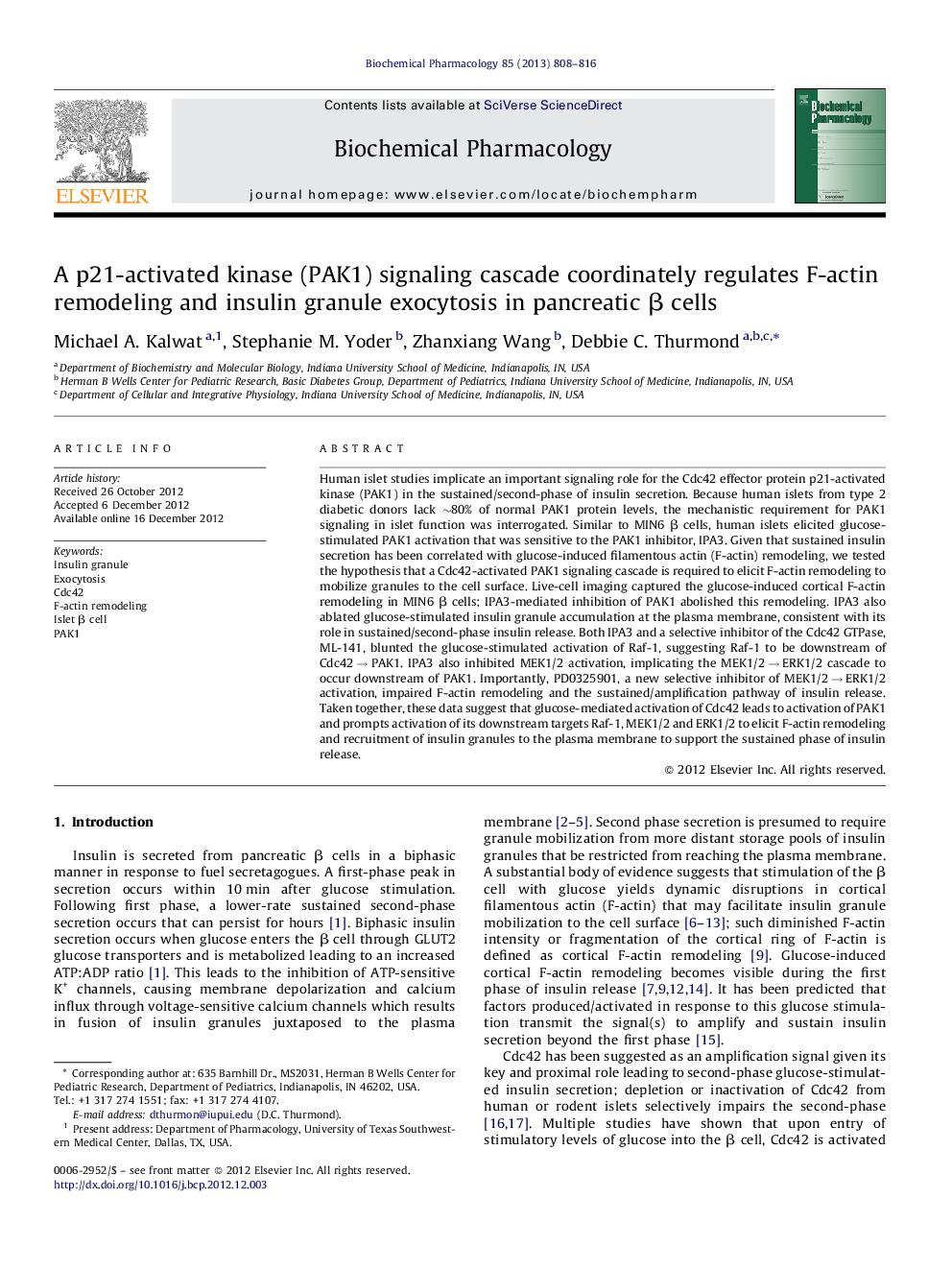| Article ID | Journal | Published Year | Pages | File Type |
|---|---|---|---|---|
| 5823537 | Biochemical Pharmacology | 2013 | 9 Pages |
Abstract
Human islet studies implicate an important signaling role for the Cdc42 effector protein p21-activated kinase (PAK1) in the sustained/second-phase of insulin secretion. Because human islets from type 2 diabetic donors lack â¼80% of normal PAK1 protein levels, the mechanistic requirement for PAK1 signaling in islet function was interrogated. Similar to MIN6 β cells, human islets elicited glucose-stimulated PAK1 activation that was sensitive to the PAK1 inhibitor, IPA3. Given that sustained insulin secretion has been correlated with glucose-induced filamentous actin (F-actin) remodeling, we tested the hypothesis that a Cdc42-activated PAK1 signaling cascade is required to elicit F-actin remodeling to mobilize granules to the cell surface. Live-cell imaging captured the glucose-induced cortical F-actin remodeling in MIN6 β cells; IPA3-mediated inhibition of PAK1 abolished this remodeling. IPA3 also ablated glucose-stimulated insulin granule accumulation at the plasma membrane, consistent with its role in sustained/second-phase insulin release. Both IPA3 and a selective inhibitor of the Cdc42 GTPase, ML-141, blunted the glucose-stimulated activation of Raf-1, suggesting Raf-1 to be downstream of Cdc42 â PAK1. IPA3 also inhibited MEK1/2 activation, implicating the MEK1/2 â ERK1/2 cascade to occur downstream of PAK1. Importantly, PD0325901, a new selective inhibitor of MEK1/2 â ERK1/2 activation, impaired F-actin remodeling and the sustained/amplification pathway of insulin release. Taken together, these data suggest that glucose-mediated activation of Cdc42 leads to activation of PAK1 and prompts activation of its downstream targets Raf-1, MEK1/2 and ERK1/2 to elicit F-actin remodeling and recruitment of insulin granules to the plasma membrane to support the sustained phase of insulin release.
Keywords
Related Topics
Health Sciences
Pharmacology, Toxicology and Pharmaceutical Science
Pharmacology
Authors
Michael A. Kalwat, Stephanie M. Yoder, Zhanxiang Wang, Debbie C. Thurmond,
